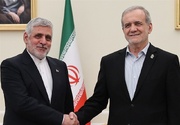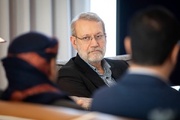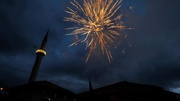A series of bloody attacks on civilians in July have focused attention on German Chancellor Angela Merkel's open-door migrant policy, which allowed hundreds of thousands of migrants from the Middle East, Africa and elsewhere into Germany last year and resulted in a decline in her domestic popularity in the European country.
According to a survey published in the newspaper "Bild am Sonntag", fifty percent of Germans oppose Merkel, blamed for her moderate asylum policy for exposing the country to a shocking bloodshed, seeking a fourth consecutive term.
Results indicate that 50 percent of poll participants were against a new term for the Chancellor, while 42 percent were in favor.
Party support
Meanwhile, within supporters of Merkel's center-right Christian Democratic Union (CDU), 70 percent support another term for Merkel, while 22 percent said they were opposed.
So far Merkel, who was first appointed as Chancellor in November 2005 and is serving her third term, has yet to announce whether or not she will seek a fourth term as Chancellor.
According to the German magazine "Der Spiegel," Merkel is waiting to see if she has the backing of the CDU's Bavarian sister-party, the Christian Social Union (CSU).
The next German federal elections are expected to be held at some point between August 27 and October 22, 2017. Merkel was first appointed as Chancellor in November 2005 and is serving her third term.
Recently, the sudden rise of attacks in Germany has encouraged political rivals of Merkel, criticizing her modest asylum policy.
The attacks have revived a backlash against Merkel's decision last year to open the borders to those fleeing war and persecution.
In the span of a week in July, an axe rampage, a shooting spree, a knife attack and a suicide bombing stunned Germany, leaving 13 people dead, including three assailants and dozens wounded.
Defending Open-Door Policy
Defending her open-door policy towards refugees, Merkel, who has led Europe's economic powerhouse for nearly 11 years, is insisting she feels no guilt over a series of violent attacks in Germany and was right to allow hundreds of thousands of migrants and refugees to arrive last summer.
“A rejection of the humanitarian stance we took could have led to even worse consequences,” the German chancellor said, adding that the assailants “wanted to undermine our sense of community, our openness and our willingness to help people in need. We firmly reject this.”
Recognizing how fearful people were about their personal safety, she said: “We’re doing everything humanly possible to ensure security in Germany,” acknowledging the “huge degree of insecurity people feel as a result of the recent events, that people are scared”. But, she said, “fear cannot be a counsel for political action”.
Anti-Merkel Rally
On July 30, over 5,000 protested in Berlin and thousands more throughout Germany over the 'open-door' policy that many have blamed for four brutal terrorist attacks that left 13 dead over the last month, while a key political ally Horst Seehofer, the conservative premier of Bavaria, dramatically withdrew his support over immigration policy.
Seehofer has launched a fresh attack on her leadership, distancing his party from Merkel and straining the coalition that keeps her in power.
Stressing he had no wish to start a quarrel with Merkel's party, Seehofer said it was important to look 'reality' in the face.
'Merkel must go' has been trending on social media, with people posting powerful pictures including one claiming that she has blood on her hands after recent attacks.
A survey found that 83 per cent of Germans see immigration as their nation's biggest challenge - twice as many as a year ago.
Recent attacks have fuelled the right-wing movement, which has long called for stricter immigration controls, particularly in Bavaria, where she faces heavy criticism from high-profile politicians.
New Asylum Policy
The violence reignited political friction that had eased as the number of new arrivals to Germany slowed to a trickle in recent months due to the closure of the Balkans migration route and an EU deal with Turkey to take back migrants.
According to German government, some 222,000 asylum-seekers arrived in this European country in the first half of this year, reflecting a much-reduced influx.
Last year, nearly 1.1 million people were registered as asylum-seekers in Germany. Interior Minister Thomas de Maiziere said he won't forecast how many will arrive in 2016, given uncertainty about developments.
Public conscience in the international community view Merkel's stand toward the refugees in the context of the International Humanitarian Law (IHL). The question come to the mind of the ordinary people regardless of their partisan affiliation is that what to do with the refugees standing behind the borders of the European states in the cold weather?
























Your Comment